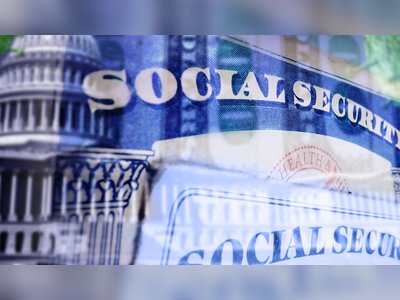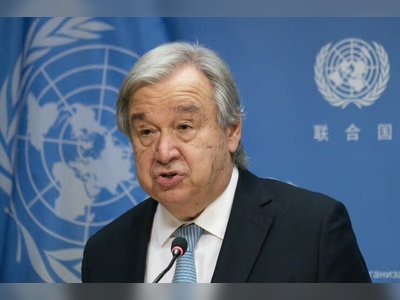Perennial U.S. Budget Battles: Political Chess at the Expense of Governance
Amid looming shutdowns, political brinkmanship overshadows essential fiscal responsibilities and human impact.
As the United States teeters on the edge of yet another government shutdown, the familiar rhythm of political maneuvering around budget approvals has reemerged, spotlighting a systemic entwinement of governance and partisanship that resonates with historical precedence.
This recurring scenario, often depicted as a strategic chess game, puts at risk the livelihoods of citizens reliant on federal services, while the true stakes are shrouded in the spectacle of power play.
The passage of a recent stopgap bill by the House, ostensibly to avert immediate fiscal catastrophe, raises pertinent questions about the nature of political power struggles that continually eclipse pragmatic governance.
This legislative patchwork extends beyond the immediate budgetary confines, setting the stage for more significant forthcoming battles, particularly surrounding the debt ceiling—a contentious issue that has historically been weaponized for political leverage.
In this political theater, former President Donald Trump looms as a potential narrative force, contemplating a return to the presidential arena.
His previous habits of transforming fiscal debates into rallying cries suggest that the upcoming political climate may carry echoes of past confrontational tactics, complicating the delicate balance between tax relief initiatives and the imperative to maintain fiscal responsibility regarding the national debt.
This cyclical crisis management leaves millions of Americans vulnerable, often overlooked casualties in the political discourse.
Each government shutdown carries genuine human costs, yet these impacts are frequently subsumed under the broader partisan narrative.
The continuous recurrence of these shutdown episodes, stretching back over the decades, reflects not only profound political divisions but also a notable inability to achieve lasting resolutions.
Against this backdrop of entrenched partisan norms, a critical question emerges: Is this symptomatic of a more significant systemic issue within the democratic apparatus?
The hyper-partisan environment seems to cripple effective political compromise and negotiation.
A shift towards more sustainable budgetary planning could potentially foster a deeper, long-term political dialogue, alleviating the cycle of fiscal brinkmanship that undermines public trust and governmental efficacy.
The postponement of the decisive debt ceiling debate leaves Trump's economic blueprint unclear, adding complexity to the national discourse on balancing tax policies with responsible debt management.
It presents what some economists might call an economic paradox, deeply embedded within the political fabric.
As external observers, we are left in suspense, pondering whether this persistent cycle will be disrupted.
While it appears as a legislative quagmire, it beckons a broader consideration: What systemic reforms could mitigate the repetitive fiscal cliffhanger?
Such moments inherently invoke Winston Churchill's wisdom, famously stating, 'The price of greatness is responsibility.' Our contemporary challenge is identifying and empowering leaders who embody this principle in both policy and practice.
In reflecting on these questions, citizens and policymakers alike are urged to consider how democratic systems might evolve to better serve in times of financial uncertainty.
The onus is on collective introspection and proactive reform to navigate these turbulent waters toward a more stable and responsive governance framework.
This recurring scenario, often depicted as a strategic chess game, puts at risk the livelihoods of citizens reliant on federal services, while the true stakes are shrouded in the spectacle of power play.
The passage of a recent stopgap bill by the House, ostensibly to avert immediate fiscal catastrophe, raises pertinent questions about the nature of political power struggles that continually eclipse pragmatic governance.
This legislative patchwork extends beyond the immediate budgetary confines, setting the stage for more significant forthcoming battles, particularly surrounding the debt ceiling—a contentious issue that has historically been weaponized for political leverage.
In this political theater, former President Donald Trump looms as a potential narrative force, contemplating a return to the presidential arena.
His previous habits of transforming fiscal debates into rallying cries suggest that the upcoming political climate may carry echoes of past confrontational tactics, complicating the delicate balance between tax relief initiatives and the imperative to maintain fiscal responsibility regarding the national debt.
This cyclical crisis management leaves millions of Americans vulnerable, often overlooked casualties in the political discourse.
Each government shutdown carries genuine human costs, yet these impacts are frequently subsumed under the broader partisan narrative.
The continuous recurrence of these shutdown episodes, stretching back over the decades, reflects not only profound political divisions but also a notable inability to achieve lasting resolutions.
Against this backdrop of entrenched partisan norms, a critical question emerges: Is this symptomatic of a more significant systemic issue within the democratic apparatus?
The hyper-partisan environment seems to cripple effective political compromise and negotiation.
A shift towards more sustainable budgetary planning could potentially foster a deeper, long-term political dialogue, alleviating the cycle of fiscal brinkmanship that undermines public trust and governmental efficacy.
The postponement of the decisive debt ceiling debate leaves Trump's economic blueprint unclear, adding complexity to the national discourse on balancing tax policies with responsible debt management.
It presents what some economists might call an economic paradox, deeply embedded within the political fabric.
As external observers, we are left in suspense, pondering whether this persistent cycle will be disrupted.
While it appears as a legislative quagmire, it beckons a broader consideration: What systemic reforms could mitigate the repetitive fiscal cliffhanger?
Such moments inherently invoke Winston Churchill's wisdom, famously stating, 'The price of greatness is responsibility.' Our contemporary challenge is identifying and empowering leaders who embody this principle in both policy and practice.
In reflecting on these questions, citizens and policymakers alike are urged to consider how democratic systems might evolve to better serve in times of financial uncertainty.
The onus is on collective introspection and proactive reform to navigate these turbulent waters toward a more stable and responsive governance framework.
Translation:
Translated by AI
AI Disclaimer: An advanced artificial intelligence (AI) system generated the content of this page on its own. This innovative technology conducts extensive research from a variety of reliable sources, performs rigorous fact-checking and verification, cleans up and balances biased or manipulated content, and presents a minimal factual summary that is just enough yet essential for you to function as an informed and educated citizen. Please keep in mind, however, that this system is an evolving technology, and as a result, the article may contain accidental inaccuracies or errors. We urge you to help us improve our site by reporting any inaccuracies you find using the "Contact Us" link at the bottom of this page. Your helpful feedback helps us improve our system and deliver more precise content. When you find an article of interest here, please look for the full and extensive coverage of this topic in traditional news sources, as they are written by professional journalists that we try to support, not replace. We appreciate your understanding and assistance.










